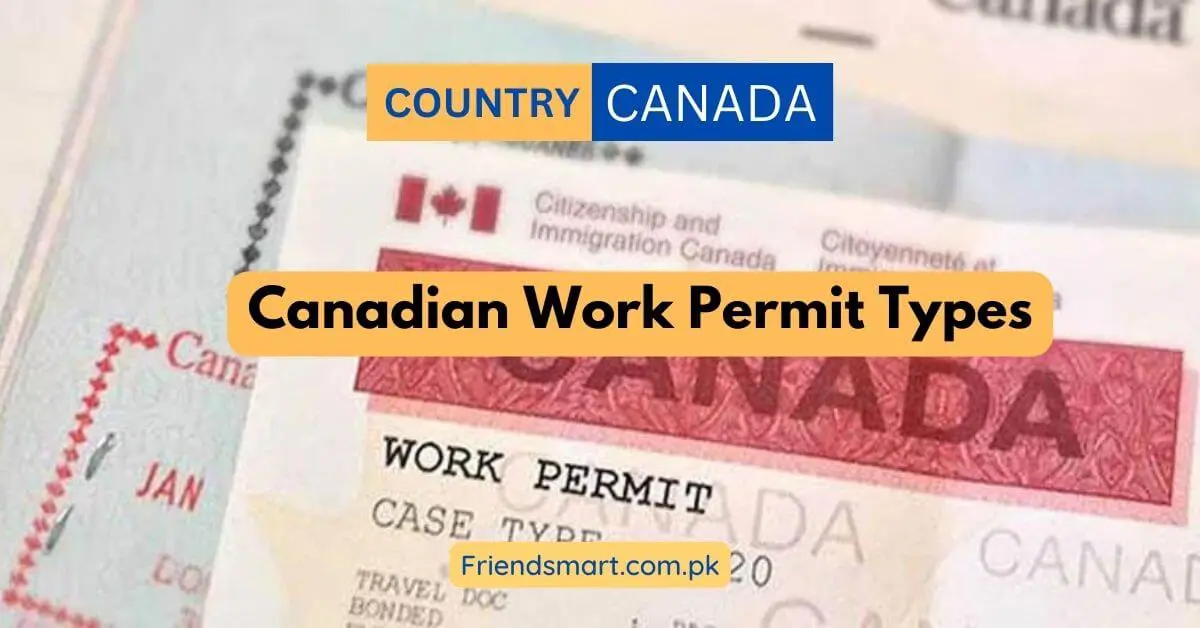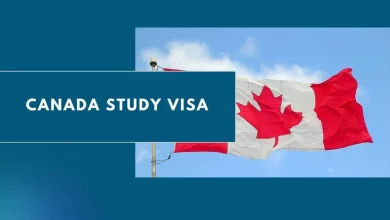Canadian Work Permit Types – Guide

Once you’ve found a job in Canada and received an employment contract or offer, you’ll need a Canada Work Permit to legally work there. Even if you get a job with the Canadian government or the commercial sector, you will still need to apply for a Canadian Work Permit. However, there is another possibility for individuals who want to enter Canada to work; and we will describe all such sorts of work visas for Canada in this article.
Canada was one of the first countries to open up immigration and work visas. Since 2024, Canada has encouraged competent persons to relocate in order to help the economy. The country is recognized as one of the top migration destinations since it offers tremendous opportunities for both career and personal development. If you want a better standard of living and more money, Canada is the place to be.
All experts who wish to pursue a career abroad consider Canada to be their home. This country’s reputation as one of the world’s most desirable travel destinations originates from its genuine work permits and a variety of work visas, as well as its simple job search and flexible immigration policies. Canada, which boasts the world’s eighth-largest economy, offers valid work permits and a variety of other services to assist newcomers in becoming permanent residents.
Check Also: Free Canada Work Visa – Easiest Way to Move
Aside from the opportunities for professional advancement and higher pay, there are numerous more reasons why people choose to work in Canada. Notably, among the country’s youth, unemployment is lower than in other countries. The country provides its personnel with first-rate medical facilities, paid time off, and holiday time that includes parental and maternal leave. The government is continuously working on modernizing its technological infrastructure in order to provide the ideal center for people who wish to begin a career in computer programming or information systems.
There are several prospects in industries such as engineering, construction, medical, pharmaceuticals, telecommunications, aviation, and aerospace.
Benefits of Canadian Work Permit Types:
- Legal Work Authorization: A work permit offers legal permission to work in Canada for a certain employer and for a specific amount of time, assuring compliance with Canadian immigration regulations.
- Access to the Canadian Job Market: Holders of a work permit can apply for jobs in a variety of industries across Canada, contributing to professional advancement and career development.
- Opportunity for Skill Development: Working in Canada offers people to learn new skills, improve their existing ones, and obtain training that will help them develop in their careers.
- Income Generation: A work visa allows people to work and support themselves and their family while living in Canada.
- International job Experience: Canadian job experience adds value to a CV and provides an international perspective, increasing employability in Canada and beyond.
- Networking and Professional Connections: Working in Canada allows individuals to create valuable contacts, build a professional network, and potentially open doors to future career opportunities inside the country or worldwide.
- Potential Path to Permanent Residency: Some work permits may serve as a bridge to permanent residency in Canada, providing an opportunity to settle and develop a long-term life in the nation.
- Access to Social Benefits and Services: Work permit holders in Canada may be eligible for certain social benefits and services, such as healthcare and education for dependent children.
- Inclusion in the Canadian Labor Market: Employers in Canada frequently recruit qualified individuals through the Temporary Foreign Worker Program (TFWP) and other work permit streams, creating chances for foreign talent to contribute to the Canadian labor market.
- Cultural Exchange and Integration: Working in Canada allows for cultural exchange by allowing people to immerse themselves in Canadian society, learn about its culture, and contribute to the nation’s diverse fabric.
- Supporting the Canadian Economy: Individuals with work permits contribute to the Canadian economy by working and paying taxes in Canada, so supporting economic growth and development.
Canadian Work VISA or Work Permit:
Work permits are required to enter and live in Canada for the purpose of working. While permissions are usually required, there are several circumstances in which you may not need a permit or a job offer. Every year, more than 500,000 immigrants arrive in Canada, making it a popular destination. If you’re thinking about moving to Canada for improved living conditions, a good place to start is by looking for work and then planning on moving permanently.
Types of Work Permits for Canada:
Canada has over a hundred different categories of work licenses. The International Mobility Program (IMP) and the Temporary Foreign Worker Program (TFWP) are operated by the country. The TFWP, unlike the other two programs, requires a labor market test known as the “Labor Market Impact Assessment” (LMIA).
Employers can use the LMIA to demonstrate to the Canadian government that hiring a migrant worker will not have a negative impact on the country’s present labor force. The following are the various types of work permits available:
1# Work Permit Via Labor Market Impact Assessment
- Temporary Foreign Worker Program (TFWP): To solve skill shortages, recruiters in Canada can temporarily hire foreigners through the Temporary Foreign Worker Program (TFWP). Employers are allowed to do so under the TFWP by hiring high-wage workers, low-wage workers, the global talent stream, foreign agricultural workers, in-home caregivers, and foreign academics.
- Facilitated LMIA (Quebec): Because Quebec has greater freedom in its migrant policies than other provincial governments, the province’s migration programs are typically handled differently. The simplified LMIA procedure in Quebec makes it simple to hire foreign personnel.
- Global Talent Stream: The Global Talent Stream is a category in Canada’s Temporary Foreign Worker Program. For some Canadian recruiters, the GTS focuses on making the work permit application process as straightforward as possible so that individuals can remain competitive globally.
2# No LMIA However a Job Offer/Contract is Necessary:
- International Mobility Program (IMP): Employers in Canada can recruit temporary foreign labor through the International Mobility Program (IMP) without having to complete a Labour Market Impact Assessment (LMIA). These LMIA waivers are subject to conditions, such as the need for migration contributes value to the nation.
- NAFTA Work Permits: Because of the NAFTA Professionals provision, specialists can apply for a Canadian work permit without an LMIA. To qualify under this policy, the professional must have skills in a vocation on the NAFTA Professionals List of Occupations and a work offer from a Canadian business.
- Work Permits under CETA: CETA provides extraordinary opportunities for EU nationals to work in Canada. Foreigners who qualify under CETA regulations may be able to work in Canada without the need for a work permit or a labor test.
- Intra-business Transfers: The International Mobility Program of Canada outlines the regulations for permitting highly qualified foreigners to work temporarily in Canada as intra-business transferees. With the assistance of an LMIA-exempt work visa, a non-citizen working for a multinational can qualify to relocate to one of the firm’s Canadian operations. All nations require an intra-company transferee permit.
3# Open Work Permits: No Employment Contract or Labor Test
- Post-Graduation Work Permits (PGWP): A form of work permit that allows international students who have completed a degree program in Canada to get a visa. PGWPs allow their holders to work anywhere they want, for whoever they want, and for however many hours they desire. This type of permission is valid for eight months to three years.
- Spousal Sponsorship from Canada: If your partner is already employed or enrolled in school in Canada, or if they sponsor you for permanent settlement in Canada, you may be eligible for an open work permit.
- International Experience Canada (IEC): The International Experience Canada (IEC) program allows young people from participating countries to travel, live, and work in Canada for a limited time. Foreigners who participate in IEC programs are eligible to apply for a Canadian work permit without having to pass a labor exam. The IEC is also known as a working holiday visa, and it is valid for 12 months.
- Bridging Open Work Permit (BOWP): The BOWP permits foreigners to continue working while applying for permanent residency.
- Spouse Accompanying International Student or Worker: Spouse Accompanying International Student or Worker: If a married foreigner with children wants to study in Canada but cannot leave their family behind, they can bring their family with them.
Conclusion:
A Canadian work permit opens the door to a plethora of professional, personal, and social rewards. It enables individuals to work lawfully in Canada, providing a road to a variety of job options, skill development, and foreign work experience. This authority not only promotes personal financial prosperity, but it also benefits the Canadian economy and adds to the country’s cultural diversity. Furthermore, for many, a Canadian work visa is a first step in achieving long-term ambitions, such as potential paths to permanent residency. In general, obtaining a Canadian work visa is an invitation to embrace a dynamic and inclusive Canadian society, supporting both professional achievement and a happy life experience.
For More Info:
Email Your CV, and We’ll Find the Best Pathway For you: info@friendsmart.com.pk
Frequently Asked Questions:
-
What is the name of the Canadian working visa?
Foreign nationals who wish to find employment in Canada temporarily typically need a work visa. The Temporary Foreign Worker Program (TFWP) and the International Mobility Program (IMP) are two of the major programs that grant work permits.
-
Do I need ielts for a work permit in Canada?
If you want to work in Canada, you have to first clear a language test to show your knowledge of the English language. If you are applying for a work visa, professional registration, or permanent residency in Canada, the IELTS General Training test may satisfy the requirements of Immigration, Refugees, and Citizenship Canada (IRCC).
-
How long is Canada’s work permit?
Work permits are typically valid for one to two years. A Canadian visa officer, on the other hand, may alter the validity period for a work permit depending on whether the worker’s visa or travel document has expired.



